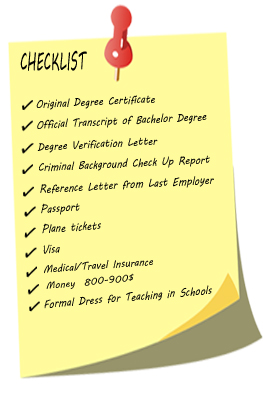Hospitals in Thailand
Hospitals in Thailand - Information for TEFL Teachers Thailand
Medical treatment is generally adequate throughout Thailand. In Bangkok, excellent facilities exist for routine, long-term and emergency health care. All tourism destinations and provincial capitals have hospitals and clinics staffed by well-trained doctors and nurses. In case of emergencies, ambulances can be summoned from any private hospital. Moreover, the cost of treatment in Thailand is only a fraction of what similar treatment would cost in Europe or United States.
Somewhat unnoticed by most, Thailand has over the years become the global leader in medical tourism, extending further medical assistance to English speakers in emergency. Thailand assets as a center for medical care for foreigners are multiple. The standard of treatment and technology is high. The hospital environment in Thailand is clearly more hospitable. It is fair to say that all the hospitals mentioned above, also look good, are mostly new, and give a favorable impression as soon as you enter them.
If foreigners have medical problems while in Thailand, they invariably seem to end up in one of a few hospitals that have a good reputation, and are well known to cater to foreign patients. Bumrungrad Hospital (Sukhumvit soi 1) seems to be most popular among residents in the Sukhumvit area. However Bangkok General Hospital and its affiliates Samitivej Hospital (Sukhumvit Soi 49) and Bangkok Nursing Home Hospital (Convent Road, off Silom Road), are also very popular.
Today the Bumrungrad Hospital in Bangkok alone treats more than twice as many medical tourists as the whole of India, the second biggest player in Asia. And while India attracts mainly visitors from neighboring Pakistan and Bangladesh, Thailand is by far the number one choice destination among westerners.
MediThai aspires to provide all the information you need, to find the best medical facilities in Bangkok and other parts of Thailand. MediThai.net is a completely independent information provider and is not affiliated with any dentist, clinic, hospital or intermediary service provider in this industry.
Information on vaccinations and other health precautions, such as safe food and water precautions and insect bite protection, may be obtained from the Centers for Disease Control and Prevention’s hotline for international travelers at 1-877-FYI-TRIP (1-877-394-8747); or via CDC’s Internet site at http://www.cdc.gov/travel. For information about outbreaks of infectious diseases abroad, consult the World Health Organization’s (WHO) website at http://www.who.int/en. Further health information for travelers is available at http://www.who.int/iht.
Thailand has been experiencing an epidemic of HIV infection and AIDS. Heterosexual transmission accounts for most HIV infections, and HIV is common among prostitutes of both sexes, as well as among injection drug users. HIV infections among men who have sex with other men appear to be on the rise. Additionally, alcoholic beverages, medications and drugs may be more potent or of a different composition than similar ones in the United States. Several U.S. citizen tourists die in Thailand each year of apparent premature heart attacks after drinking alcohol or using drugs.
Avian Influenza: The CDC, WHO, and Thai authorities have confirmed human cases of the H5N1 strain of avian influenza, commonly known as the “bird flu.” Travelers to Thailand and other countries affected by the virus are cautioned to avoid poultry farms, contact with animals in live food markets, and any surfaces that appear to be contaminated with feces from poultry or other animals. In addition, the CDC and WHO recommend eating only fully cooked poultry and eggs.



 I heard great things about this TESOL course from 4 different people who went through it last year. I have always wanted to travel and teach, so this program was perfect for me.
I heard great things about this TESOL course from 4 different people who went through it last year. I have always wanted to travel and teach, so this program was perfect for me.  After looking at other programs in Thailand, I found ACT was offering the lowest price. Also, Kiersten and I came together and her friends had previously done the ACT program and they had nothing but good things to say about the program.
After looking at other programs in Thailand, I found ACT was offering the lowest price. Also, Kiersten and I came together and her friends had previously done the ACT program and they had nothing but good things to say about the program.  The ACT program seemed to be a great way to receive hands on training. It was a great learning experience. Sangeeta and Pak did a great job throughout and I was continually impressed with them and how professional the company was.
The ACT program seemed to be a great way to receive hands on training. It was a great learning experience. Sangeeta and Pak did a great job throughout and I was continually impressed with them and how professional the company was. 